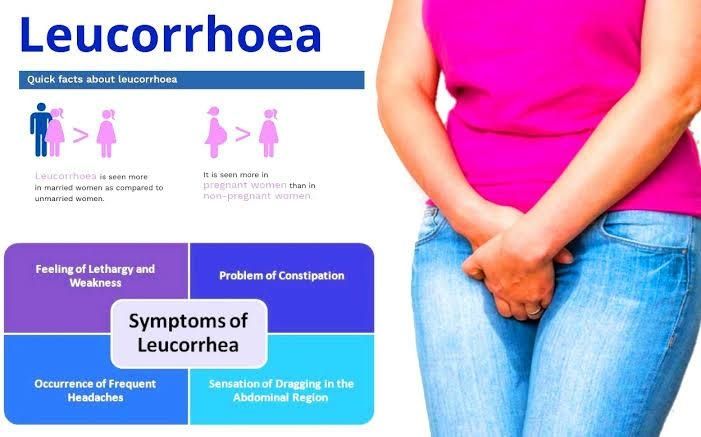
The first symptom of leucorrhoea is the appearance of a white discharge. This discharge is lumpy and usually has a pungent odour. Symptoms of leucorrhoea include itching and the desire to scratch the vagina. Women may experience pain when urinating. Despite its name, leucorrhoea is not a woman’s menstrual cycle. It is not dangerous, but it is best to see a doctor right away.
Generally, this type of discharge begins to appear during ovulation and persists for several hours. This condition usually begins within a few days of ovulation. It increases during pregnancy and becomes a lot thicker. During menstruation, it may last for up to two days. During pregnancy, it can cause pain in the abdomen and should be treated promptly. In addition to seeking medical attention, it’s important to make sure the secretion isn’t a sign of an underlying medical condition.
Unlike the condition of white water, leucorrhoea can also be embarrassing and point to other gynecological problems. As a result, women with leucorrhoea should consult with a doctor as soon as possible for evaluation and treatment. Some causes include pregnancy, menstrual periods, and infections of the female genital organs. It can also be caused by hormonal irregularities. If you are experiencing a severe occurrence of leucorrhoea, it is recommended that you seek treatment immediately.
Leucorrhoea is a common symptom of infertility. During menstruation, women usually produce small amounts of white cheesy discharge. A yellowish tint is common, but the discharge itself does not cause a woman’s discomfort. If you notice this, consult with your doctor to determine whether it is a symptom of a more serious ailment.
When you have leucorrhoea, it is important to understand how it is caused and how it can be treated. Often, it is a sign of pregnancy, although a woman who has it does not necessarily have to be pregnant. When the discharge is green, it may be due to a pelvic inflammatory disease or infection. In some cases, the discharge is a result of infertility.

A woman’s vaginal fluid is often cloudy, but this is normal. It can be caused by various medical conditions. In some cases, it can be due to a post-partum infection, which is not yet diagnosed. The same is true of leucorrhoea that occurs due to an infection. Sometimes, it can be the result of a sexually transmitted disease, an unprotected intercourse, or postpartum discharge.
Leucorrhoea is a symptom of vaginal swelling, and it can indicate an infection. In some cases, the discharge can be caused by a sexually transmitted disease or a postpartum condition. In the Unani system of medicine, leucorrhoea is classified according to its type. The symptoms are similar to the symptoms of other diseases.
During pregnancy, leucorrhoea may be caused by an infection. It is also caused by an excess of estrogen, which signals the vagina to produce more discharge. In early stages of pregnancy, a woman may experience a creamy vaginal discharge. While this discharge is not indicative of pregnancy, it does suggest a pregnancies. This hormone helps the body produce more blood, but it can also be due to an illness.
In most cases, women can prevent leucorrhoea by modifying their diets. Changing your diet will help you to avoid the symptoms. However, if you have already experienced leucorrhoea, it is important to get medical attention as soon as possible. When it comes to treatment, the symptoms of leucorrhoea are characterized by a white-ish discharge in the vagina. It may be a symptom of an infection, but it is often difficult to distinguish from another one.
The discharge of a woman’s vagina is white or clear and usually harmless. A woman’s vaginal liquid is always normal, but it can be an indicator of a disease. An unpleasant vaginal discharge may indicate a pathological infection and must be treated by a doctor. People with this condition should visit a gynecologist to find out what causes it.
